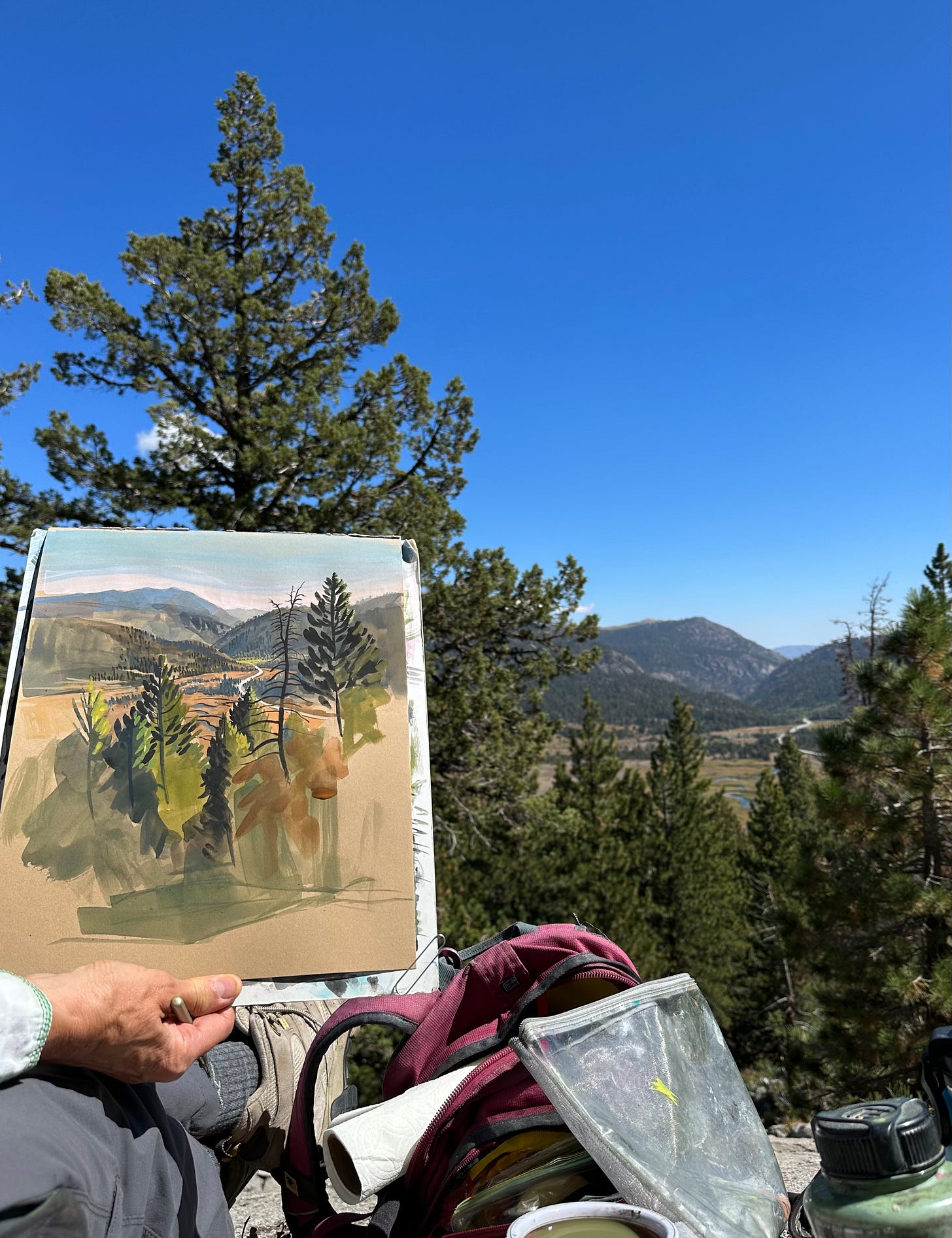Prompt #92: Play
Writing Exercise, September 2023
Hi Friends,
Last week my friend Phyllis and I went out into the woods to paint (her) and write (me). I’ll often make dates like this, where I write with others (even if they’re painting) in order to remind myself I’m not so alone in this endeavor. Taking it outside also makes writing more fun, reminding me I don’t have to be stuck inside at a desk. Since I quit my full-time teaching job a few years back, writing is now my job (along with adjunct teaching, writing coaching, and manuscript evaluation). When something becomes a job, it’s sometimes easy to lose sight of how fun it is, how what you’re doing was something you always loved to “play.”

I asked Phyllis, who is now a successful painter, if she thought painting was still play, or if now it seemed solely her work. She said, “It’s still play. It’s still fun, but it’s stressful, too.” When I asked her why, exactly, she said, “Because you need to make something happen.” And that might be the very definition of when play moves into work—when you need to make something happen. With play, nothing needs to happen: play is for its own sake; however, when we get good at something we love playing, it sometimes becomes work, because something needs to happen, whether that’s winning a competition or making a painting that someone wants to buy or writing a book worth reading.
I’ve written before about my lifelong love here (some might call it an obsession) with skiing. When I was 20, I started teaching skiing, and the thing I most loved in the world became a job. At first, I was in Heaven—I was getting paid to ski! Then the reality set in: I was climbing up the hill, picking up 4-year-olds, telling them to make pizza and French fries all day, and begging them not to cry. I was also working on my certifications, meaning I was taking clinics and exams in order to become a fully certified instructor. This meant that I also became hyperaware of how I looked while skiing, rather than focusing on what it felt like and the joy I experienced while doing it.
I didn’t believe anything could ruin my favorite thing in the world, but all those Professional Ski Instructors of America clinics and exams did just that, so I quit teaching skiing and took up telemark skiing (the binding is different, so the heel is not attached, making it…much harder). I was terrible at telemark skiing, but that’s exactly what I was going for. Being a beginner again and not caring what I looked like made skiing fun again.
It was work to learn how to telemark, but it was very much play (and resulted in a lot of tumbling and face plants) because I didn’t care how terrible I was; no one was judging my ski instructor turns. Once I fell right in front of some bro-dude on a double-black diamond, who called me a “Gaper.” I got up and still covered in snow, I skied over to him and said, “I’m TELEMARK skiing, which is WAY harder to learn than snowboarding. So tell me, WHO’s the GAPER now?” He apologized and quickly rode off, probably because I looked like a deranged snowperson.
After about 10 years of telemark skiing, I eventually returned to Alpine skiing, and I found the joy and wonder in it all over again. The same is true for writing. When it
Keep reading with a 7-day free trial
Subscribe to 52 Writing Prompts to keep reading this post and get 7 days of free access to the full post archives.


